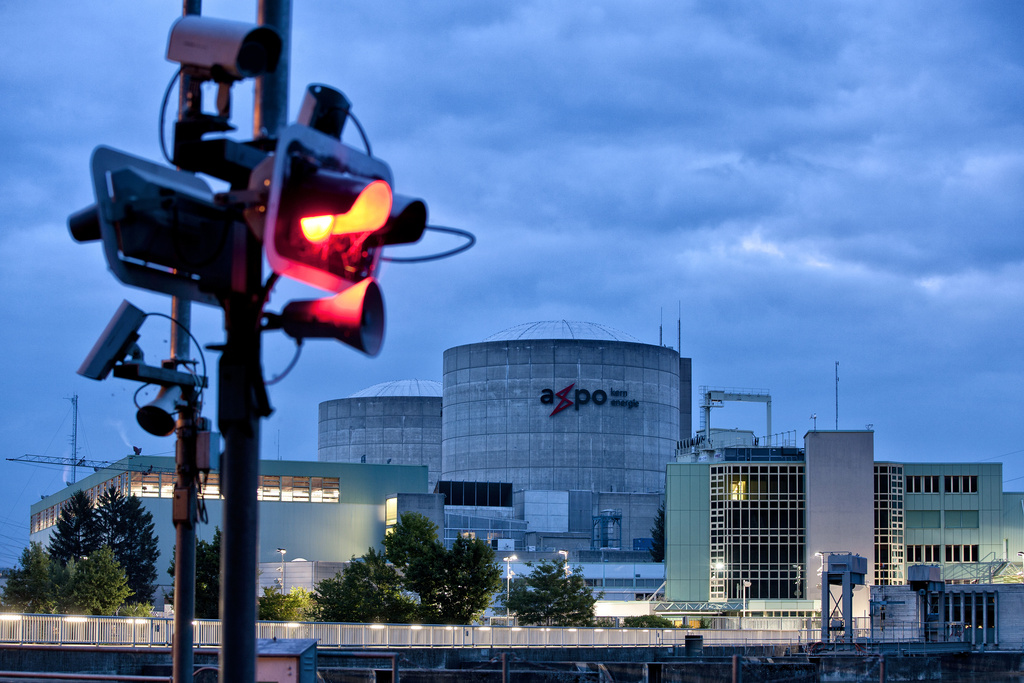
Senate endorses nuclear phase out

Parliament has decided to gradually shut down the country's nuclear power plants by 2034 and boost renewable energy resources.
The Senate followed the House of Representatives in calling on the government to ban new nuclear plants but keep parliament informed about innovations in the field.
In the debate supporters of a withdrawal warned of the risks of nuclear energy and the disaster at the Fukushima power plant in Japan, more than six months ago.
Several senators, notably from centre-left parties, pointed out better energy option were available and the issue of nuclear waste had not been resolved.
However, opponents mainly from the rightwing Swiss People’s Party and the Radicals, traditionally close to the business community, argued a withdrawal was unrealistic and hasty.
Energy Minister Doris Leuthard for her part made a passionate plea for a withdrawal from nuclear energy.
“If we succeed in promoting new technologies it is an investment in the name of our children for Switzerland’s future,” she said.
Leuthard acknowledged questions remained and doubts were justified.
“What is important though is that we make a start now. I call on you to have confidence in the government that this is the right way into the future and that we can tackle it together and with the support of all responsible-minded citizens,” she continued.
Compromise
The clear result of Wednesday’s vote – with a three to one majority – came after a parliamentary committee prepared a compromise formula, promoted by the centre-right Christian Democratic Party, which will give parliament another chance to have a say at a later stage.
“Even if we were to ban nuclear power plants now our successors in parliament could still one day decide on building on new reactors,” a Christian Democratic Senator, Filippo Lombardi from Ticino, said on behalf of the committee.
Discussions on nuclear power are due to continue in the new parliament which is due to convene for the first time in December following general elections next month.
Reaction
The Social Democrats, the Greens as well as the Christian Democratic Party hailed the Senate decision as an important step towards a new energy policy amid calls for further measures to switch to more renewable energy sources.
The private Swiss Energy Foundation which promotes better energy efficiency, said parliament was sending a clear signal to the business community and to society.
However, the Swiss Business Federation criticised parliament for banning the construction of new nuclear power plants. It stressed the need for a coherent and realistic energy policy.
“Such a strategy has to show what impact a nuclear opt out would have on the security of supply, for businesses, the independence of Switzerland and the environment,” a statement said.
Other energy
The government called for a withdrawal from nuclear energy in May – a proposal backed by the House of Representatives a month later.
The government estimates that phasing out nuclear power in Switzerland would cost up to SFr3.8 billion ($4.2 billion).
Some 40 per cent of the country’s energy needs are supplied by the five domestic nuclear power plants. The government wants to replace this share by hydroelectric power, renewable energy as well as combined gas plants and energy saving methods.
Over the past few months Switzerland has seen renewed public anti-nuclear protests, notably against the operators of the nuclear power plant outside Bern which was only put on the grid again a few days ago after being ordered to improve safety standards.
Switzerland currently has five nuclear reactors which generate that will gradually come off the power grid as of 2019.
Nuclear power, including imports from neighbouring France, currently cover 38% of Switzerland’s energy demand.
Hydropower provides for 56% of Switzerland’s electricity while the remainder comes from other sources, including renewable energy.
In 1990 voters approved a ten-year moratorium for the construction of new nuclear power plants. In 2003 – three years after the end of the freeze – the electorate rejected an extension of or definite withdrawal from nuclear energy programmes.

In compliance with the JTI standards
More: SWI swissinfo.ch certified by the Journalism Trust Initiative






























You can find an overview of ongoing debates with our journalists here . Please join us!
If you want to start a conversation about a topic raised in this article or want to report factual errors, email us at english@swissinfo.ch.